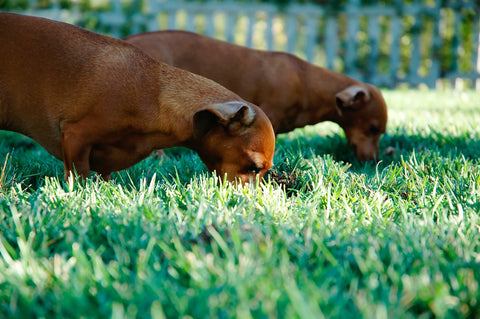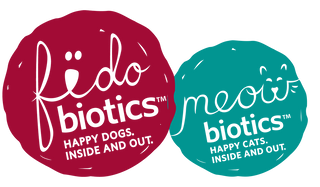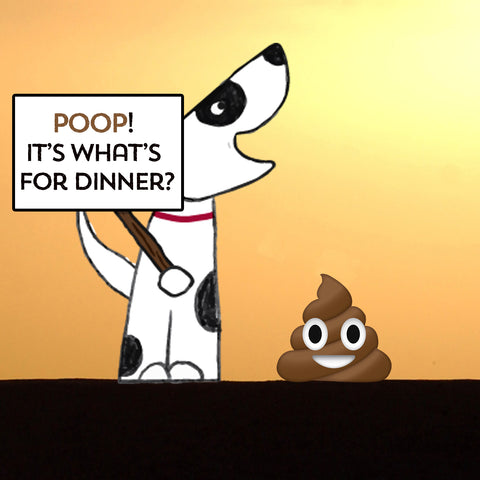Have you ever wondered why dogs eat poop? Learn about possible nutritional deficiencies to behavioral factors that may influence this behavior.
Have you ever wondered why your furry friend sometimes snacks on something as unappetizing as their own poop? This behavior, known as coprophagia, might seem bizarre and a bit yucky, but it's relatively common for dogs.
There are several reasons behind this peculiar habit, ranging from nutritional deficiencies to behavioral tendencies. As dog owners, it's important to recognize why coprophagia happens and how it can impact your dog's health and wellness.
If your dogs are poop eaters and you want to learn more about this behavior, keep on reading! From adjusting your dog's diet to modifying their environment, you'll find valuable tips to improve your pet’s health to keep them happy and away from their less-than-appetizing habits.
Why Does My Dog Eat Poop?
Coprophagia, the act of animals eating their own feces, is a behavior that can cause concern for pet parents. Though it seems unsavory, this habit is relatively common among canines for various reasons.
Nutritional and Medical Causes
Nutritional Deficiencies: A dog's diet is a common factor in coprophagia. If regular feedings lack essential nutrients, vitamins, or digestive enzymes, your pet might use feces as a way to get the missing nutrients. Dogs regularly eating low-quality dog food might not get all the required nutrients.
If you are concerned about your dog’s diet, take a photo of your pet food label and ingredients list and share it with your veterinarian. Your vet can help you ensure your pet gets what it needs.
Medical Conditions: Sometimes, coprophagia can be a symptom of underlying medical issues. Dogs suffering from medical problems like Cushing’s syndrome, thyroid problems, or other gastrointestinal disorders may develop a taste for poo. It's a way for them to cope with discomfort or nutritional imbalances caused by their illness. Again, a veterinarian is best positioned to diagnose these types of medical conditions.
Behavioral Factors
Not all coprophagia is due to nutritional or medical reasons. Your dog's normal behavioral tendencies also play a role.
Curiosity and Boredom: Dogs are opportunistic scavengers, meaning they wonder if anything they encounter is potential food. This natural curiosity is especially strong in puppies and young dogs. They might eat poop simply out of curiosity or boredom. It's a way for them to explore their environment.
Female Dog Instincts: In nature, mother dogs often consume their puppies' feces to keep the den clean. Other dogs sometimes mimic this behavior, especially if they have been exposed to it during their developmental stages.
Anxiety and Attention Seeking: Dogs experiencing anxiety might resort to comforting behaviors like eating/chewing to help them manage their anxiety, even if the only thing to eat is feces. Similarly, dogs craving attention may engage in behavior that will get their human’s attention. If the goal is human interaction, bad behavior is sometimes more effective than good behavior.
Pica: Pica is a psychological condition where dogs impulsively eat non-food items. It's important to distinguish pica from normal puppy behavior, as puppies are known to explore their world with their mouths. However, it becomes a concern when this behavior persists or escalates in adult dogs.
Recognizing these causes allows for more effective interventions, whether improving your dog's diet, seeking veterinary care for potential health issues, or addressing behavioral challenges through training and environmental enrichment.
How to Get Your Dog to Stop Eating Poop

If you’re looking for ways to stop your dog from eating poop, it’s important to first address the reasons behind the stool-eating habit and then apply some of these strategies to help them feel their best and get back on track.
The Role of a Balanced Diet
Quality dog food that meets all the nutritional requirements can significantly reduce the chances of your dog turning to feces as an alternative source of nutrients. Ensuring your dog's diet balances proteins, fats, carbohydrates, vitamins, and minerals is key.
Supplements and Digestive Enzymes
Sometimes, a dog may require additional supplements, even with a balanced diet. This could be due to their unique physiological needs or age-related dietary requirements. Supplements and digestive enzymes can help combat any malabsorption issues they may be experiencing and ensure that the dogs are deriving the maximum benefit from their meals.
Intestinal Parasites
Intestinal parasites can lead to malnutrition and gastrointestinal issues in dogs, as they interfere with nutrient absorption. Regular deworming and veterinary check-ups can help ensure your dog is free from parasites, which, in turn, can prevent coprophagia.
Positive Reinforcement Training
Positive dog training can go a long way in preventing your dog from eating poo. Positive reinforcement techniques can be effective, such as rewarding good behavior with treats or praise. Consistently reinforcing commands like “leave it” helps teach dogs to ignore feces.
Playtime
Regular playtime can go a long way to stop bad habits like eating poop. Simple, fun activities like fetch, walks, or interactive toys keep your dog busy and happy. Playtime helps avoid boredom-related behavior, like eating poop. Your dog wants your attention. It is always wiser to give them the attention they deserve before they start looking for creative ways to get your attention.
Environmental Management
Regularly cleaning the kennel and ensuring that the cat’s litter box is out of reach are also practical steps, especially if your dog has a propensity to eat cat poop. Immediate cleanup of pet waste from the yard or during walks also minimizes the opportunity for dogs to engage in this behavior.
Veterinary Insights and Wellness
Veterinary medicine plays an important role in diagnosing and treating coprophagia. Vets (DVMs) can determine if the behavior is linked to nutritional deficiencies, medical conditions, or behavioral issues. They can then recommend appropriate treatments or dietary adjustments.
Boost Your Dog’s Health With Probiotics
Tackling issues like coprophagia can be tricky, but Fidobiotics is here to help with our specialized range of probiotic supplements. These supplements are designed to enhance your dog's digestive health and immune system, addressing the root causes of nutritional and behavioral issues. Explore Fidobiotics' products and take a proactive step towards boosting your dog's health.

